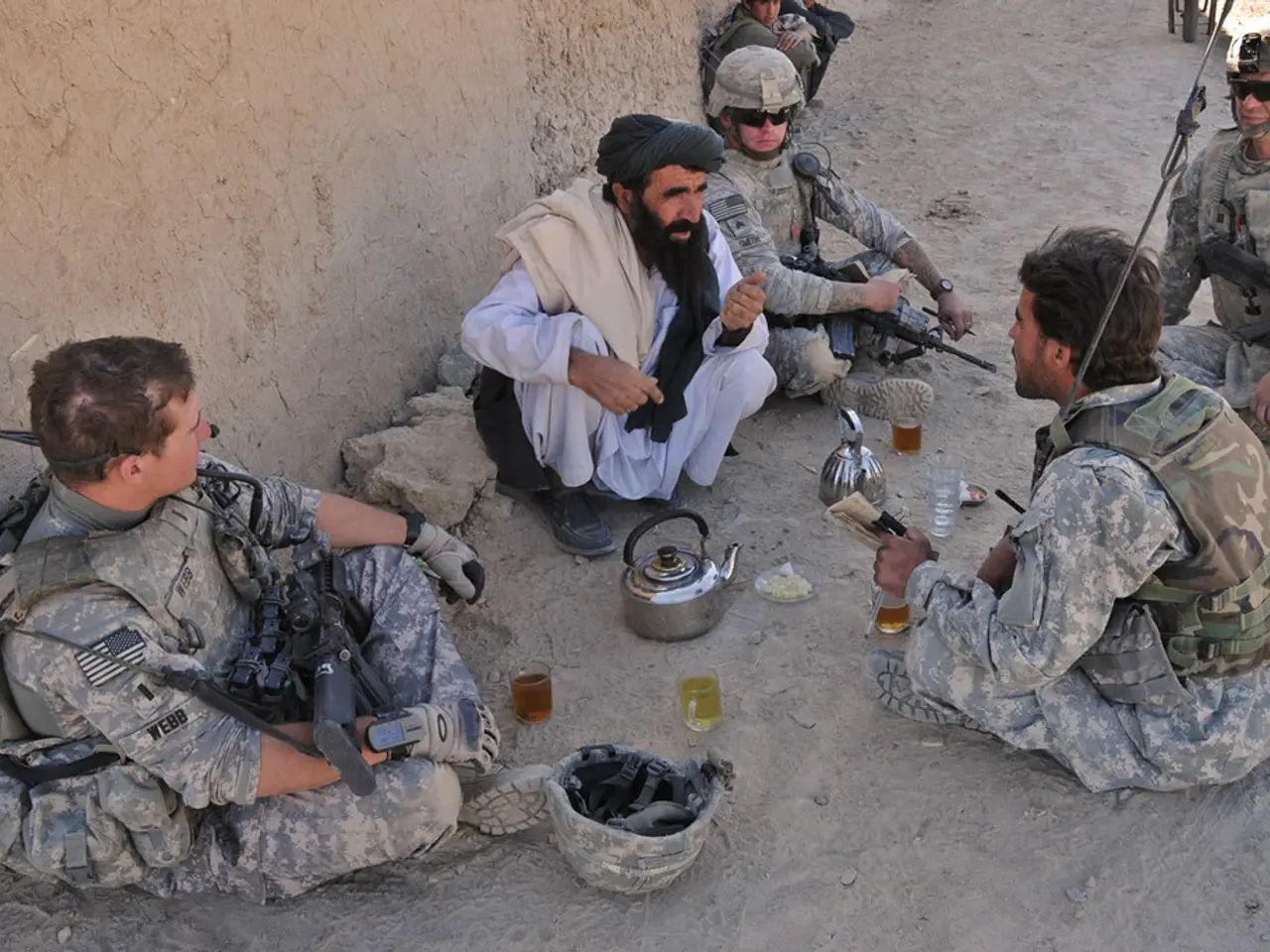Political crisis leading to human suffering
In the aftermath of the German government's decision to halt intake programs for Afghan nationals who worked for German authorities or were involved in human rights activism, the current situation for these individuals in Pakistan is precarious.
Pakistan is currently conducting large-scale operations to repatriate undocumented Afghans, focusing on security and militant threats. Over 30,000 Afghans have been repatriated from regions like Quetta amid counterinsurgency operations targeting militants near the Afghan border. This environment could potentially put Afghan auxiliaries, especially those without formal protection or legal status, at risk of deportation or hostile treatment.
However, no recent data details the specific status of these Afghan auxiliary forces or activists in Pakistan post-German program halts. The Taliban regime's persecution of these individuals is a serious concern, as they would face persecution if they were to return to Kabul.
The individuals in question were brought to Pakistan for safety after the Taliban took power, with a promise of later being taken in by Germany. Around 2400 people, mainly local staff and their relatives, are currently stranded in Pakistan due to the halt in intake by the German government.
Despite repeated confirmations of intake promises by German administrative courts, Pakistan is creating new facts regarding these individuals. This situation is particularly cruel, as these people are stuck in no man's land without a clear path to safety.
The halt on accepting Afghan local staff by the German government has had dramatic consequences for this manageable group of people in Pakistan. The broader context mirrors Afghan refugee vulnerabilities worldwide amid suspension of evacuation and support programs by Western governments, as illustrated by the termination of Temporary Protected Status (TPS) for Afghans in the U.S., which has left many vulnerable.
One might have expected more from the Social Democrats regarding the intake of Afghans. Trusting the word of the German government can be a risky business for these individuals, as the new German government has stopped the intake programs for Afghans. The German Federal Foreign Office and the Federal Ministry of the Interior are currently led by politicians from the Union party.
It is important to note that the "C" in the Union party name does not have any specific significance beyond graphic design. The situation is particularly shameful for the SPD, given their historical commitment to refugee rights. Among the affected are underage girls and lone women, whose fate is uncertain and potentially dire.
This development is particularly concerning, as these people either worked for German authorities during the German Bundeswehr deployment in the Hindu Kush or were involved in human rights activism. Trusting the word of the German government has proven to be a risky business for these individuals, and it remains to be seen how their situation will be resolved in the coming days.
- The precarious situation of Afghan auxiliary forces and human rights activists in Pakistan, who were brought to the country for safety but are now stranded due to the German government's halt on intake programs, highlights the risks associated with trusting government promises, especially in matters relating to war-and-conflicts, policy-and-legislation, and politics.
- The abandonment of these individuals, many of whom are underage girls and lone women, by the German government raises questions about commitment to refugee rights, a long-standing issue within the realm of general-news and political discourse.
- As these Afghan auxiliaries and activists were either employed by German authorities or involved in human rights work, their plight serves as a reminder of the potential dangers faced by individuals caught in the crossfire of war-and-conflicts, and the need for comprehensive migration policies to protect them.







